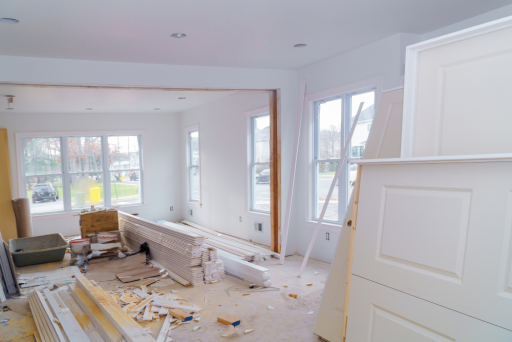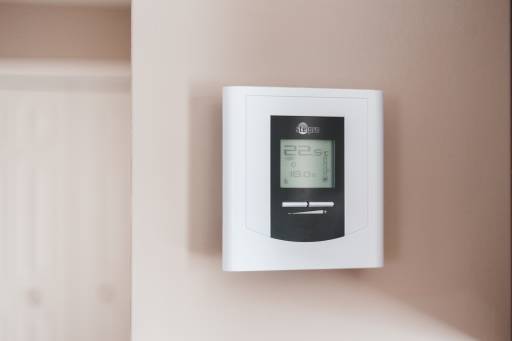I Want to Heat My Home With Electricity. Where Do I Start?
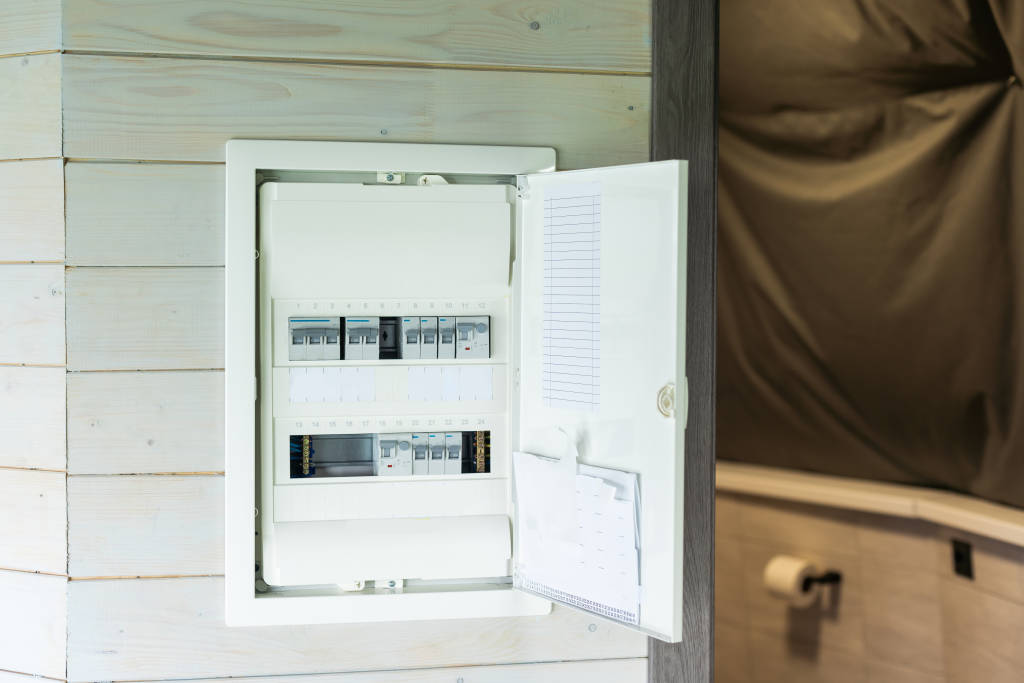
So you want to heat your house with electricity? Here's how it works.
You hate the idea of heating your house with fossil fuels. You hate the big winter energy bills even more. Luckily, there are solutions, and we can help.
Why not join the almost half of US households that heat their house with electricity? While it can see daunting to figure it out, we’ve got all the deets on making it happen.
And congratulations on starting your susty homeowner journey.
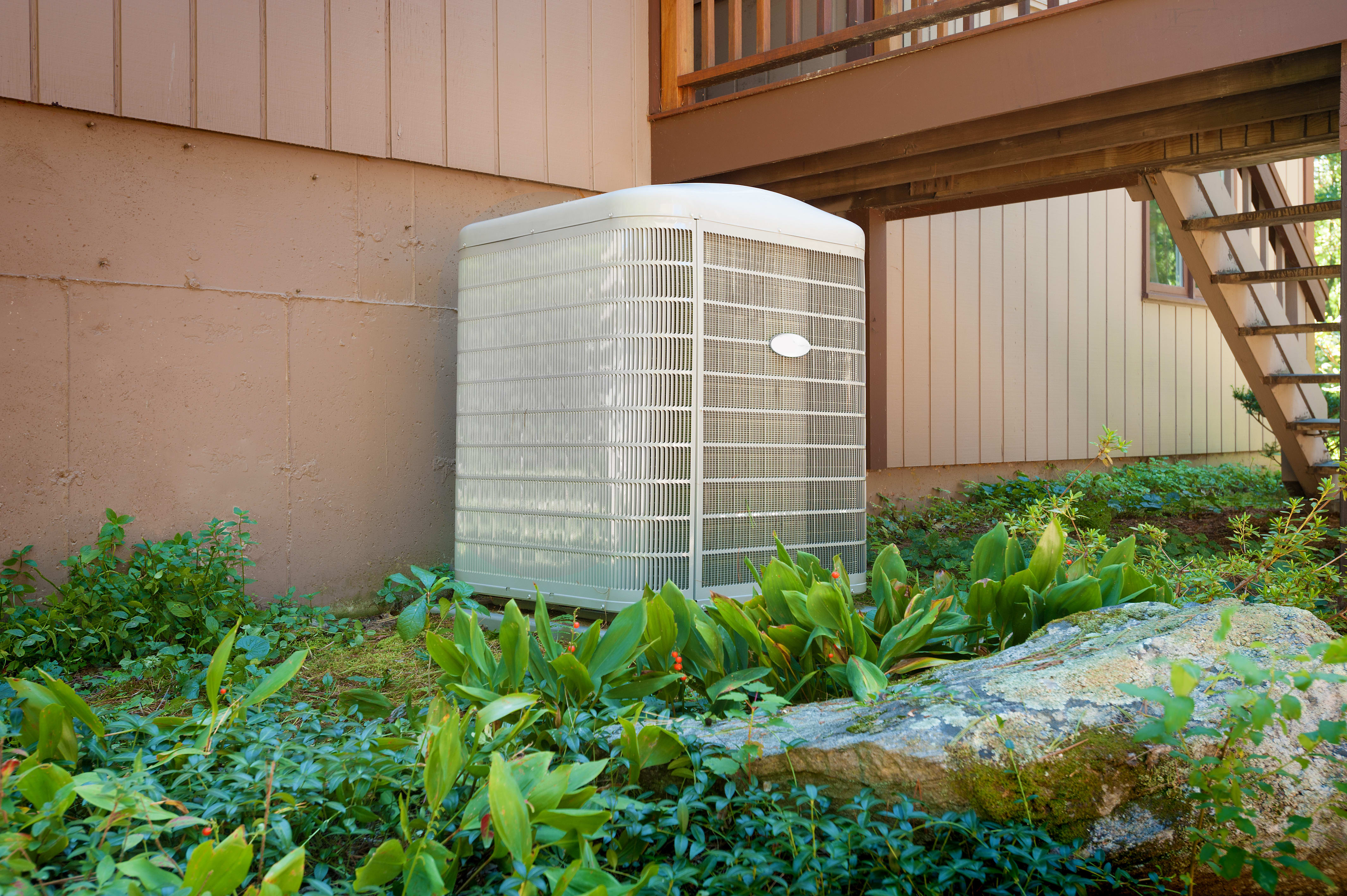
Woohoo! Why should I heat my house with electricity and not gas or oil?
As with anything, electric heating comes with its pros and cons.
The biggest pro is, of course, the generally smaller carbon footprint of electric heating options versus gas-powered ones. This point is especially true for certain types of electric heating, and if your house or your utility provider gets all or at least some of its electricity from renewables.
But there are also more immediate, tangible benefits of heating your home with electricity that you and your roomies will notice right away.
Easy and Cozy ☕
The convenience and comfort provided by electric heating is unmatched by gas and oil heaters, for a couple of reasons.
As hip homeowners know, most appliances have “smart” capabilities nowadays, and electric heaters are no exception to the trend. Most new models can be controlled by your phone via accompanying apps. That means you can do things like turn on your heat remotely so your house is cozy as can be from the second you walk in the door after work, or set different temperatures in different rooms from the comfort of your couch.

Zoned Heating 🚧
Being able to set different rooms to different temperatures at all is another feature of electric heating that fossil fuel heaters lack.
More often than not, gas heaters have to be connected to a gas line, which means they cannot go just anywhere in your house; they have to live in the utility closet, and consequently they can only deliver the heat they produce to your house via ductwork.
Not only does this rob you of the pleasure of being able to nitpick your temperature preferences on a room-by-room basis, but it can also enormously decrease the energy efficiency and cost effectiveness of your heating system. Often, you’re heating rooms unnecessarily and losing heat to leaky ducts.
Electric heaters are much more versatile, because all they need to function is: drum roll please… an outlet!
Which you probably have a lot of all over the place. So, you can much more easily achieve “zoned heating”, allowing you to heat your home in smarter, more efficient ways.
Peace and Quiet 🤫
Another point for comfort: electric heaters tend to be quieter than gas heaters. There are noisy electric heaters - most articles about baseboard electric heaters will cite the racket they can make as one of their less-than-desirable features. But on the whole, electric heaters don’t make a lot of noise because they do not rely on combustion to produce heat.
This may not seem like a big deal, but it could also be something that you don’t even know you’re missing out on because you’ve gotten so used to the sounds your gas heater makes.
Home, Safe Home 🏠
Electric heaters not needing to rely on fossil fuels and their combustion to produce heat has other benefits that have nothing to do with comfort and convenience; namely, to heat your house with electricity is a lot safer and healthier than gas heaters.
When you heat your home with gas or oil, you are accepting some degree of risk. There is always the potential for gas leaks, which can have devastating consequences - natural gas poisoning, fires, and even explosions.
Spoiler alert: all of those things can kill you.
Electrifying your HVAC system can reduce the probability of these sorts of events - and if you decide to ditch your gas range for an electric oven and an induction stove, you can completely eliminate the possibility of a gas leak and its aftermath from your home.
Gas leaks may seem like a silly thing to worry about; after all, most gas-powered HVAC systems have a variety of safety features and fail-safes to prevent gas leaks and to stop them from getting out of hand if they do occur.
You have likely lived your whole life in a home with a gas furnace and a gas stove and a gas oven and never experienced a dramatic gas leak. But even when gas appliances are functioning properly, the way they are designed to, they are still polluting your home, threatening your physical well-being.
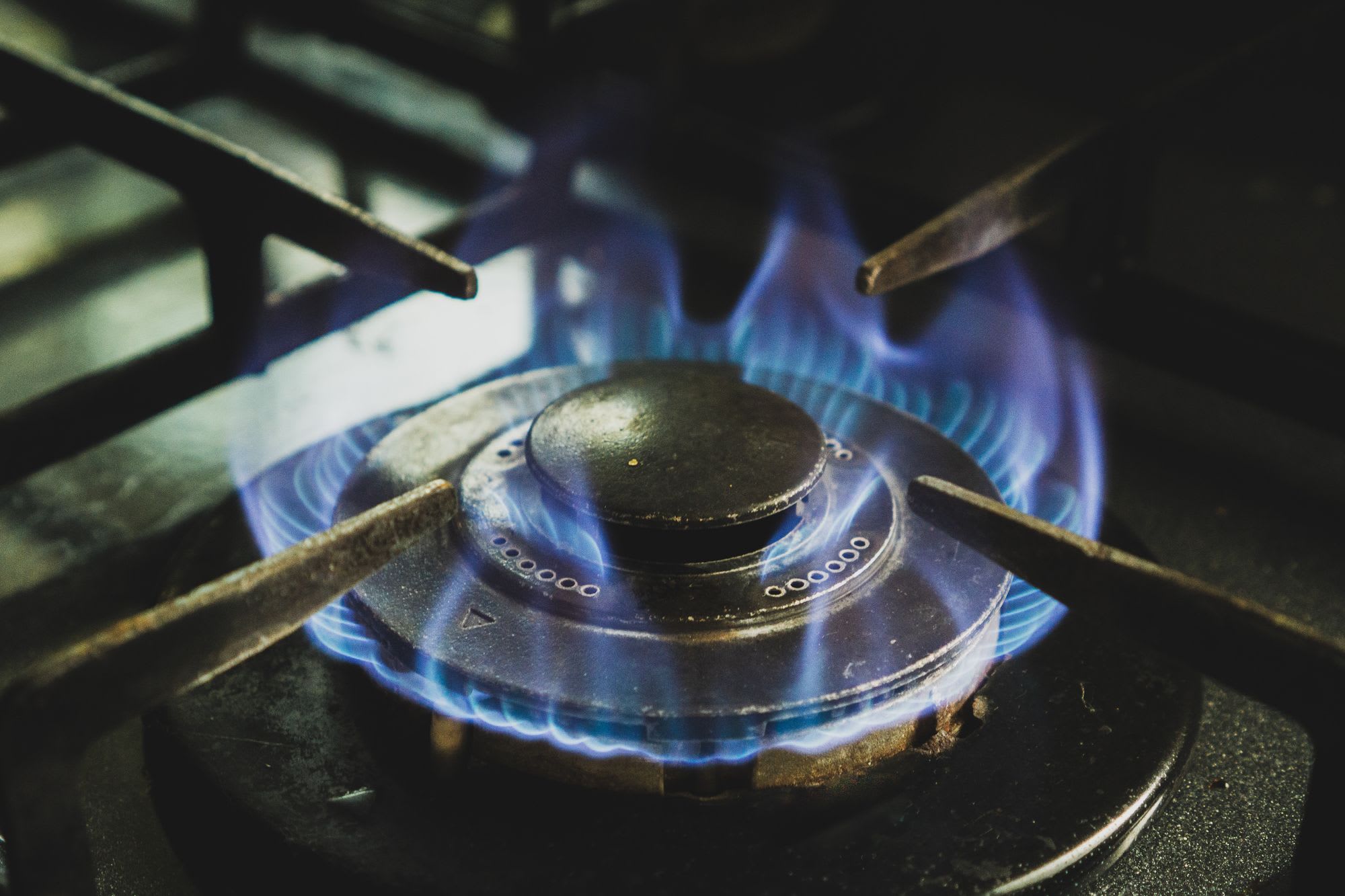
That’s because the burning of fossil fuels releases toxic chemical byproducts into the air: nitrogen dioxide, carbon monoxide, and carbon dioxide. All of these gasses are odorless, tasteless, and colorless, which means they are undetectable without the use of special tools like carbon monoxide alarms.
But the fact that you can’t smell, taste, or see these gasses doesn’t mean they are harmless.
They are all poisonous; the quantities being released from functioning gas appliances are not enough to kill you, but certainly enough to damage your health. I’m sure you’ve come across a headline (or two or fifty) in the last year talking about how the use of gas stoves in households has been directly linked to childhood asthma: your furnace is no different.
The problem presented by these gasses is even more amplified if your home lacks proper ventilation, and if it is airtight (which it should be if you’re milking your HVAC system for all its worth - read more about that here).
Once again: an electric heating system paired with electric appliances in your kitchen completely eliminates the threat of these toxic gasses.
Heating your house with electricity can save you money ****💸
And finally, the most important part of any home improvement project equation: money. As a responsible adult who is doing their best at adulting, you probably are concerned about the cost of all this comfort and convenience and health and wellness.
Anything that is that good has got to have a hefty price tag.
First the good news: on the whole, electric HVAC systems are cheaper to purchase AND cheaper to install. This is because they are generally simpler machines that don’t have any special installation procedures.
Of course, the installation of some options like electric radiant floors and geothermal heat pumps is much more complex and will ultimately cost more than others, but there are a LOT of types of electric heaters available at many different price points.
Electric HVAC systems also require less maintenance over time. Gas furnaces should be serviced regularly for safety reasons: please refer back to the paragraph with the word “explosions” in it. Electric HVAC systems have all of the usual safety features of electric appliances built in, and can be left alone until there is reason to think they need maintenance to improve their functionality.
But… this does bring us to the cons ❌
The bad news: certain kinds of electric heating methods can be very expensive to operate.
You may have already come across statistics claiming that heating your house with electricity costs 2-3 times as much as heating it with natural gas.
A more precise statistic from “Shrink That Footprint” based on data borrowed from the US Energy Information Administration claims that $37 worth of heat provided by natural gas would cost $49 dollars if it were provided by electricity, making electric heating about 1.3 times more expensive than natural gas heating. This difference in operation costs is made even more daunting by the fact that electric heaters tend to take longer to heat up your house.
The fact that electric heaters take longer to heat up your house can also lead to another consequence: a higher carbon footprint.
Because the majority of electricity is still generated using fossil fuels, more electricity = more emissions. Yuck.
But DON’T PANIC! All of your bougie, susty electric-heat dreams can still come true on a budget, because this high price of operation and potentially large carbon footprint is only true for SOME electric heating options. We’ll get into that below.
It might also be important to consider the current push to wean ourselves off of fossil fuels: an urgent goal which necessitates widespread electrification. Electrification efforts and incentives may very well lead to decreasing electricity prices and rising fossil fuel prices in the near future.
This hypothetical price shift is definitely not the most compelling argument for converting to an electric HVAC system, especially given our country’s historical track record for making climate-friendly decisions, but it’s something to keep in mind.

When you have to break out the candles… 🕯️
There is one con that applies to all electric heating options: the lack of heat during a power outage.
If you are completely dependent on electricity for your heat, then you are out of luck if the power goes out. This is an especially scary prospect if you live somewhere with dangerously low winter temperatures.
There are ways around this. Things like back-up generators or batteries storing excess energy if you have solar panels can come in clutch in the case of a black out. There are also various “hybrid” HVAC systems which use electricity under normal circumstances but can switch to natural gas should the need arise.
SCREW IT, I WANT ELECTRIC HEAT! What are my options?
There are SO. MANY. TYPES. OF. ELECTRIC. HEATERS. Here are just a few options for heating your house with electricity:
- electric forced air furnaces
- electric boilers
- electric convection heaters
- electric baseboard heaters
- electric radiant floor heaters
- night storage heaters
- infrared heating panels
- electric radiators
- and more!
Before you start crying thinking about all the research you’re going to have to do to pick the right electric heater for you, don’t.
Instead, just go with a heat pump.
Please note: Wildgrid does not design, manufacture, or sell heat pumps. We are not sus, and you are not being tricked. Heat pumps are just hands down the best option if you want to ditch your 50-year-old furnace for something a little more sexy and sustainable.
With a heat pump, you get all of the pros that come with electric heating in general. They’re versatile, come at a lot of different price points, and can almost definitely meet the set of needs that are unique to your location and your home.
But, what makes them so special is that they are also MEGA efficient. This is because they deliver heat to your home using an entirely different mechanism than other electric heaters.
All of the heaters listed above convert electricity directly into heat using a method called “electric resistance heating.” So, if you want to heat your house by a certain number of degrees, a run-of-the-mill electric heater will consume the equivalent amount of electricity to get the job done. 1:1.
And because heat pumps don’t require as much electricity to produce the same amount of heat as electric heaters, they are much more cost effective and better for the planet.
TLDR;
Want to heat your house using electricity?⚡
Go with a heat pump. Mic drop. Wildgrid out.
Wanna start the process of electrifying everything? Click here to learn more.

